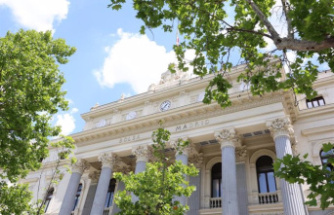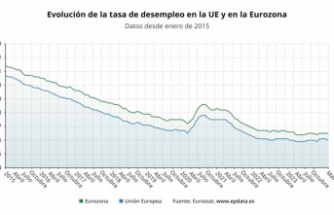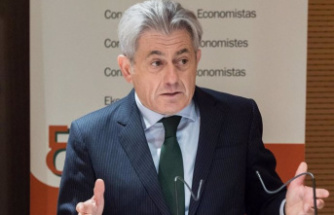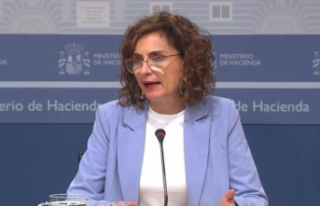Considers that the 'cap on gas' has reduced electricity prices, but warns of its "high cost"
MADRID, 26 Oct. (EUROPA PRESS) -
An average household belonging to the 20% of the Spanish population with the lowest income (the bottom quintile) will dedicate in 2022 8.8% of its total budget to pay its different energy bills, while in 2020 that percentage was 5, 6%, which translates into an increase of 550 euros per year, according to a new study by Cambridge Econometrics.
At the opposite extreme, an average household belonging to the 20% of the population with the highest income (top quintile) will dedicate 5.09% of its total expenditure to energy in 2022, while in 2020 that percentage was 3. 3. 4%.
The report delves into how the increase in the price of fossil fuels due to the Russian invasion of Ukraine is contributing "disproportionately" to the peaks of inflation in Spain, where last September it stood at 8.9% in rate year-on-year and in the two previous months it exceeded 10%.
In fact, fossil fuels, both for transport and natural gas, accounted for approximately 23% of the total year-on-year inflation registered in May, 25% of that which occurred in June and 19% of that of July, details the report.
In this sense, the document points out that "a greater expansion of renewable energies seems to be the correct political option", especially if one takes into account the volatility of the world prices of fossil fuels and their impact on the economies when their prices are high.
"Boosting the share of renewables increases energy independence, reduces the exposure of domestic consumers to world market prices and has the potential to drive down electricity prices in the long run," he says.
In this context, the report advocates an increase in the electrification of transport, industry and heating so that, together with the expansion of renewable energies, it can "reduce the exposure of domestic consumers and companies to volatility in fossil fuel prices and limit the need for government intervention in times of high energy prices.
On the other hand, the Cambridge Econometrics analysis highlights that among the measures adopted by the Government to try to mitigate the rise in energy prices, the one known as the 'gas cap' or 'Iberian mechanism' (which entered into force last 15 June) has "significantly reduced and stabilized" wholesale electricity prices in Spain compared to other European countries, such as France, for example.
However, he warns that this measure "has a high cost" and warns that "in the long term" these emergency interventions could be avoided by investing in battery storage and pumped hydroelectric power to replace gas at peak demand. Of electricity.
In this sense, the analysts emphasize that currently consumers "do not fully benefit from the low costs of renewable energies" due to the role that natural gas and coal still play in determining the prices of the European wholesale markets for electricity.
On this, he emphasizes the fact that the wholesale electricity markets in Europe are of a marginal type. This means that the latest technology that manages to marry supply and demand to meet the energy needs in each time slot is the one that determines the price at which the megawatt hour (MWh) of the rest of the technologies used at that time is paid.
Thus, the increase in the price of natural gas used in combined cycles to generate electricity (the most expensive technology) influences the price with which the rest of the technologies are paid.













